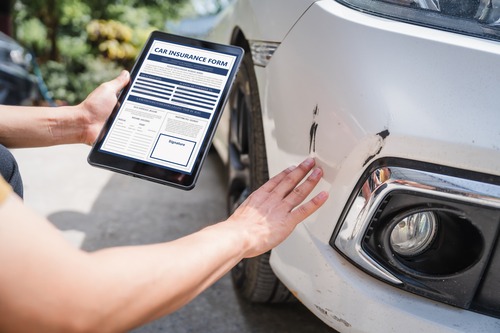Know Your Rights and Maximize Your Compensation After a Car Accident
Being involved in a car accident can be an overwhelming and stressful experience. Beyond dealing with injuries and vehicle damage, navigating the insurance settlement process often feels like an added burden during an already difficult time. Understanding how car accident settlements work with insurance companies can help you protect your rights and secure the compensation you deserve.
At Atlanta Metro Law, we’ve guided countless accident victims through this complex process, and we’re here to break down exactly what you can expect when pursuing a car accident settlement.
What Is a Car Accident Settlement?
A car accident settlement is an agreement between you (the injured party) and the at-fault driver’s insurance company to resolve your claim without going to trial. In this agreement, the insurance company pays you a sum of money in exchange for releasing them from further liability related to the accident.
Most car accident cases settle before reaching the courtroom, which can save time and reduce stress. However, settling doesn’t mean you should accept whatever the insurance company initially offers. Understanding the settlement process empowers you to negotiate effectively and ensure you receive fair compensation for your losses.
Step 1: Seek Medical Attention Immediately
Before even thinking about settlements, your health must be the top priority. Seek medical attention immediately after an accident, even if you don’t think you’re seriously injured. Some injuries, such as whiplash, concussions, or internal injuries, may not show symptoms right away.
Medical records serve a dual purpose: they document your injuries and establish a clear connection between the accident and your medical treatment. This documentation becomes crucial evidence when negotiating your settlement. Insurance companies often argue that delayed medical treatment means injuries weren’t serious or weren’t caused by the accident.
Step 2: Report the Accident and File Your Claim
You’ll need to report the accident to your insurance company and the at-fault driver’s insurer. When filing your claim, provide factual information about the accident, but be careful about making statements that could be used against you later. Avoid admitting fault or speculating about what happened.
Georgia operates under a fault-based insurance system, which means the at-fault driver’s insurance company is responsible for covering your damages. Your claim will include medical expenses, property damage, lost wages, and pain and suffering.
Step 3: Investigation and Documentation
Once you file your claim, the insurance company will begin investigating the accident. They’ll review police reports, interview witnesses, examine vehicle damage, and assess your medical records. During this phase, it’s essential to gather and preserve evidence on your own as well.
Important documentation includes:
Police accident reports, photographs of the accident scene, vehicle damage, and your injuries, medical records and bills, pay stubs showing lost wages, witness contact information and statements, and correspondence with insurance companies.
The more comprehensive your documentation, the stronger your negotiating position. At Atlanta Metro Law, we help our clients compile thorough evidence packages that leave no room for insurance companies to undervalue claims.
Step 4: Calculating Your Claim’s Value
Determining the value of your car accident claim involves both economic and non-economic damages. Economic damages include quantifiable losses such as medical bills, property damage, lost income, and future medical expenses. Non-economic damages compensate you for pain and suffering, emotional distress, loss of enjoyment of life, and permanent disability or disfigurement.
Insurance companies often use formulas to calculate settlement offers, but these formulas rarely account for the full impact of your injuries on your life. An experienced attorney can help you accurately value your claim by considering factors such as severity and permanence of your injuries, impact on your ability to work and earn income, effect on your daily activities and quality of life, the cost of ongoing medical treatment or therapy, and psychological trauma from the accident.
Don’t accept an insurance company’s first valuation as final. These initial offers are often significantly lower than what your claim is truly worth.
Step 5: Negotiating with the Insurance Company
After the insurance company completes its investigation, they’ll typically make an initial settlement offer. This is where many accident victims make costly mistakes. Insurance adjusters are trained to minimize payouts, and their first offer is almost always lower than what they’re willing to pay.
Effective negotiation requires understanding the full extent of your damages, knowing the tactics insurance companies use, and being prepared to counter low offers with solid evidence. This is where having legal representation makes a significant difference.
At Atlanta Metro Law, we’re known as Atlanta’s 25% Lawyer because we believe in providing exceptional legal representation at a fair fee. We negotiate aggressively on behalf of our clients, ensuring insurance companies take your claim seriously.
Step 6: Reaching a Settlement Agreement
If negotiations are successful, you’ll reach a settlement agreement. Before you sign anything, make sure you understand exactly what you’re agreeing to. Settlement agreements are final—once you sign and accept payment, you typically cannot seek additional compensation later, even if your injuries turn out to be more severe than initially thought.
Your attorney should review all settlement documents carefully to ensure the terms are fair and that you’re not unknowingly waiving important rights. The settlement agreement will specify the payment amount, payment timeline, and release of liability clauses.
Step 7: Receiving Your Settlement Payment
Once both parties sign the settlement agreement, the insurance company typically issues payment within 30 days, though this timeline can vary. Your attorney will receive the settlement check, deduct their legal fees and any outstanding medical liens, and forward the remaining amount to you.
When Should You Hire an Attorney?
While you’re not legally required to hire an attorney for a car accident settlement, having experienced legal representation significantly improves your chances of receiving fair compensation. Consider hiring an attorney if you’ve suffered serious or permanent injuries, liability is disputed, the insurance company denies your claim, you’re receiving a low settlement offer, multiple parties are involved, or you’re unsure about the value of your claim.
Insurance companies have teams of lawyers working to protect their interests. Shouldn’t you have someone protecting yours?
Why Choose Atlanta Metro Law?
At Atlanta Metro Law, we understand the physical, emotional, and financial toll a car accident takes on victims and their families. Our approach is straightforward: we work on a contingency fee basis, meaning you don’t pay unless we win your case. As Atlanta’s 25% Lawyer, we’re committed to transparency and fair legal fees.
When you work with us, you’re not just another case number. We take the time to understand your unique situation, keep you informed throughout the process, and fight tirelessly to secure the compensation you deserve.
Take the First Step Toward Justice
Navigating the car accident settlement process doesn’t have to be overwhelming. With the right legal team by your side, you can focus on healing while we handle the complex negotiations with insurance companies.
If you’ve been injured in a car accident in the Atlanta metro area, don’t settle for less than you deserve.
Contact Atlanta Metro Law today at 864-894-2045 for a free consultation. Let us put our experience to work for you and help you secure the settlement you need to move forward with your life.
Remember, time limits apply to filing car accident claims in Georgia, so don’t wait to seek legal advice. Your recovery starts with a single phone call.







